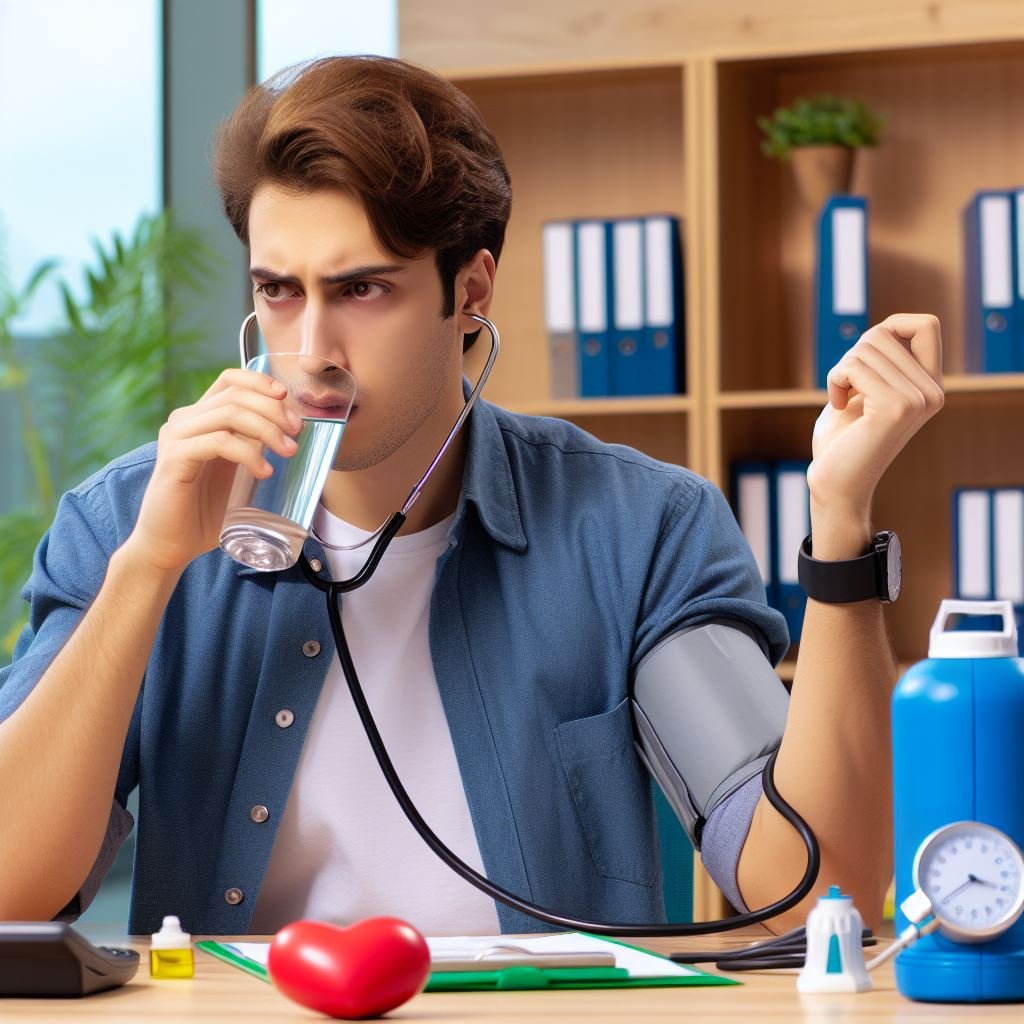
does drinking water lower blood pressure-
Yes, staying well-hydrated by drinking water can have a temporary effect on blood pressure. When you are adequately hydrated, blood volume increases, and this can lead to a modest decrease in blood pressure. However, this effect is generally temporary, and other factors, such as overall health, diet, and physical activity, play more significant roles in long-term blood pressure management.
It’s important to note that excessive water intake beyond what your body needs may not provide additional benefits and can, in rare cases, lead to a condition called hyponatremia, where the balance of electrolytes in your body is disrupted.
For individuals with hypertension (high blood pressure), lifestyle changes such as maintaining a healthy diet, regular exercise, and managing stress are crucial for long-term blood pressure control. If you have concerns about your blood pressure or overall health, it’s advisable to consult with a healthcare professional for personalized advice and guidance.
How does drinking water lower blood pressure-

The Relationship Between Drinking Water and Blood Pressure:
Exploring the Hydration Effect
Introduction:
Maintaining optimal blood pressure is crucial for cardiovascular health, and lifestyle choices, including diet and hydration, can play a significant role in achieving this balance. In recent discussions about blood pressure management, the question arises: can drinking water influence blood pressure levels? This article delves into the potential connection between hydration and blood pressure.
Understanding Blood Pressure:
Blood pressure is the force exerted by circulating blood against the walls of the arteries. It is expressed in two measurements: systolic pressure (the force during the heartbeat) and diastolic pressure (the force when the heart is at rest). Normal blood pressure typically falls within the range of 90/60 mmHg to 120/80 mmHg.
The Role of Hydration:
Proper hydration is essential for overall health and bodily functions. Water is involved in nutrient transport, temperature regulation, and waste elimination. Some studies suggest that dehydration may have a temporary impact on blood pressure. When the body is dehydrated, blood volume decreases, leading to a potential increase in blood pressure.
The Short-Term Effect:
Drinking water can have a short-term effect on blood pressure, especially if dehydration is a contributing factor. When adequately hydrated, blood volume increases, allowing the heart to pump blood more efficiently. This, in turn, may contribute to maintaining normal blood pressure levels.
Long-Term Hydration and Blood Pressure:
While short-term effects are evident, the long-term relationship between habitual water intake and sustained blood pressure control is a topic of ongoing research. Some studies propose that chronic dehydration may be linked to an increased risk of hypertension. However, more research is needed to establish a clear and direct correlation.
Tips for Maintaining Hydration and Supporting Blood Pressure Health:
Drink an Adequate Amount of Water:
- The recommended daily water intake varies, but a general guideline is around 8 cups (64 ounces) for adults. Individual needs may differ based on factors such as age, weight, and activity level.
Balance Electrolytes:
- Adequate intake of minerals like potassium and sodium is essential for maintaining fluid balance. Incorporate potassium-rich foods like bananas, oranges, and leafy greens into your diet.
Limit Sodium Intake:
- Excessive sodium intake is associated with increased blood pressure. Be mindful of processed and salty foods and aim to maintain a balanced sodium intake.
Monitor Your Blood Pressure:
- Regularly check and monitor your blood pressure levels, especially if you have concerns or risk factors for hypertension. Consult with a healthcare professional for personalized advice.
Conclusion:
While there is evidence to suggest a connection between hydration and blood pressure, the relationship is complex and influenced by various factors. Staying adequately hydrated is an important aspect of overall health, and it may contribute to maintaining normal blood pressure levels, particularly in the short term. However, it’s essential to approach blood pressure management comprehensively, incorporating a balanced diet, regular physical activity, and other healthy lifestyle choices. As always, consult with healthcare professionals for personalized guidance on blood pressure and hydration.




Pingback: Fairlife Milk: A Nutrient-Rich Dairy Innovation